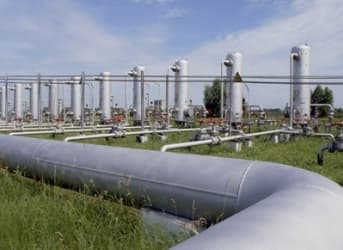Well, it’s official. The Burgas-Alexandroupolis oil pipeline, intended to provide a Thracian bypass for Russian oil to avoid the increasingly congested Turkish Straits tanker traffic, is officially dead.
Says who?
Bulgaria’s Finance Minister, Simeon Diankov.
According to Diankov, Bulgaria has paid up all of its expenses associated with contingency planning for the project – in 2009, $6.37 million, in 2010 - $1.73 million. For 2011, Bulgaria’s share was $224,000, and all expenses have been paid in full.
Speaking to reporters, Diankov has expressed confidence that Bulgaria’s withdrawal from the pipeline project will lead the country to pay anything beyond it its $7.84 million remaining due on the project, which accrued during the pipelines advance financing and which the government transferred to the relevant creditors at the beginning of last month.
But it may not be so simple for Sofia to dodge the bullet, as Russian Federation Energy Minister Sergei Shmatko has warned that his country will take all measures of available legal redress to force Bulgaria to pay indemnities over the cancelled Burgas-Alexandroupolis oil pipeline project.
In 2008 a contract was signed for the construction of the Burgas-Alexandroupolis oil pipeline between Russia, Bulgaria and Greece in Athens amid much fanfare as an international energy pipeline project that would be used to transport Russian and Caspian oil from Bulgaria’s Burgas Black Sea port to Greece’s Alexandroupolis harbor in the Aegean.
Suffice it to say that much has changed since then as Greece has become the European Union’s economic basket case on the verge of default.
The 174-mile, 35-50 million ton per year pipeline would have provided an alternate means of transporting Russian and Caspian oil by circumventing the increasingly congested tanker traffic in Turkey’s narrow Bosporus and Dardanelles straits to European markets.
Cui bono?
Well, the Russian Federation’s pipeline monopoly Transneft held 51 percent of the project, while Bulgaria and Greece shared equally the remaining 49 percent.
Last year Bulgaria announced that it was abandoning the project and would reimburse Russia's costs incurred to finance Bulgaria’s equity.
Any surprise that Moscow is annoyed?
Down but not out, Russia is insisting that Bulgaria continue its participation in the pipeline, according to Mikhail Barkov, a member of the Trans-Balkan Pipeline supervisory board and Transneft Vice President.
Responding to Parliamentary questioning, Diankov stated that all of Bulgaria’s fiscal commitments have been paid in full by the Bulgarian side and “We owe nothing on this project.”
Bulgaria is now calling for the dissolution of the Trans-Balkan Pipeline intergovernmental agreement.
Quite aside from representing a disagreement between a major oil exporter seeking additional transport routes and a transit country deciding not to participate, the disagreement represents a larger tectonic shift in Eastern Europe, as during the Soviet era Bulgaria was one of the most supine Eastern states to the dictates of Moscow, but, two decades after the collapse of Communism in the USSR, is now both a member of the European Union and NATO. While Bulgaria’s integration into the two organizations has hardly been smooth, it is obvious that the country’s political orientation has firmly shifted westwards.
So, with an apparent Balkan stake driven through the heart of the Burgas-Alexandroupolis oil pipeline, who wins and loses?
On the surface, losers all around.
Russia, blocked from developing an alternative export route.
Turkey, which will see tanker traffic through the Turkish Straits continue unabated.
Greece and Bulgaria, who will lose projected oil transit fees.
The apparent death of the Burgas-Alexandroupolis oil pipeline represents a rare political setback for the Russian Federation’s new (again) President, Vladimir Putin, whose political agenda includes as a top priority reasserting political influence in areas formerly dominated by the Soviet Union, whose dissolution he has called “the greatest tragedy of the 20th century.”
By. John C.K. Daly of Oilprice.com



















I would like to apologise properly for comments I made on previous reports on this issue. My comments were out of order.
Sincerely
Philip Andrews